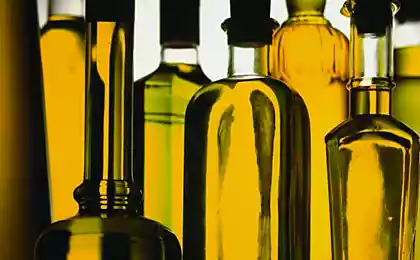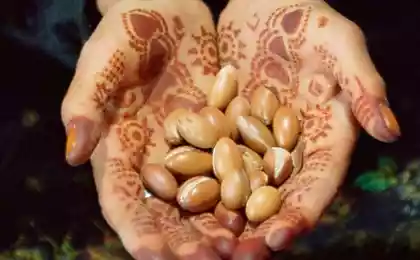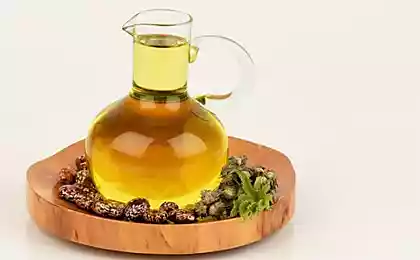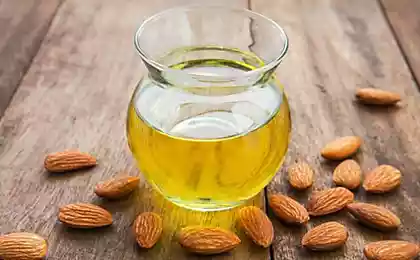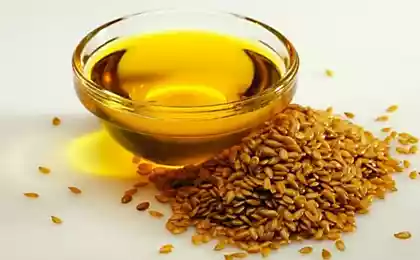941
Palm oil is a must know!
Palm oil is widely used in food industry, it is added to confectionery, semi-finished products made of dough. Palm oil contained in potato chips, crackers, sauces, Margarines, processed cheese, chocolate and many other products. The exception is not even baby food.

Where does palm oil?
It is drained from the fruit of the oil palm, which grows in the distant Malaysia, Indonesia and Thailand. In its composition it is very close to cream.
The statistics of WWF (world wildlife Fund) States that 50% of all packaged products contain in their composition palm oil, while world production of palm oil has doubled over the last decade.
This product is made from the fruits of palm species Aviora or elais Elais guienensis. From the pulp of the fruit extract the oil called palm oil. But the kernel of the fruit also come into play. Of them produce oil, which is called agropalma. One plant produces at a time to four and a half liters of product. Due to the fact that the product itself crushed almost on the plantations of palm trees, its manufacture is quite simple and does not require special mechanisms.
At first glance, it may seem that if it is a product of plant origin, it is harmless. It turns out, not at all.
Palm oil is harmful to health
Palm oil contains a lot of saturated fat. If ordinary vegetable oil contains so-called unsaturated fatty acids (which are considered useful from the point of view of dietetics and nutrition), palm oil contains saturated fatty acids (they are considered to be more harmful and are present mainly in foods of animal origin). Now, palm oil is almost as much saturated fatty acids, like butter.
Such fats from plant sources are very resistant to environmental influences. Therefore, products in which they belong, stored for a long time, do not lose taste. In other words, it is a good preservative. Using it, improves marketable products, enhanced flavor characteristics, increased shelf life, reduced product cost. But if for manufacturers it is economically advantageous, for consumers is very harmful.
Nutritionists explain that saturated fats contained in palm oil is harmful to human health. The digestive system of humans is not adapted to such food. The consumption of saturated fats leads to abnormal lipid metabolism, increased cholesterol levels, resulting in affected vessels occur the atherosclerotic process. The body wears out faster and gets old.
The ability of fatty acids to increase the level of cholesterol in the blood and provoke the development of atherosclerosis, thrombosis, heart disease, obesity make palm oil an unacceptable product in human nutrition at any age.
Authorities in the field of healthy nutrition are constantly being told about the need to consume as little as possible saturated fats, which are the main components of palm and other tropical oils and, of course, are meat and dairy products.
"The national Institute for the study of heart, blood and lung", which is a division of "National Institute of Health" in 1997 warned his statements: "Saturated fats raise cholesterol in the blood as no other. This excess cholesterol can clog arteries. Consequently, increases the risk of heart disease".
In 2015, imports of palm oil to Russia increased by one third
The volume of supply of palm oil to Russia is growing at a frightening pace. After joining the WTO, the duties fell on him at times — and imports went up. Major suppliers of palm oil to Russia are Indonesia (61%), Malaysia (14%), Netherlands (10%) and Ukraine (9%).
While strict regulations of the use of palm oil in Russia. This allows many dealers to buy its technical options at bargain prices in third world countries. According to experts, most often for these purposes the purchase of oil intended for the production of cosmetics, pharmaceutical products, toilet preparations, Soaps, detergents and Lakokraska. Another problem: we have rules on the transport of palm oil, allowing you to carry it in tanks under bitumen and tar.
Last year the state Duma has already tried to declare war on tropical oils. It was stated that we in the food industry most often used low-quality oil intended for technical applications. The application of those proposed to ban. But the specific taboos, the situation never reached.
Another problem is oxidation of the oil. "Against the use of high-quality palm oil in food products (and this is pressed from the fruit collected for 24 hours and cleaned) almost no one objected. However, the thus obtained oil is very important to pack in air tight containers for delivery to the place of consumption. Otherwise any vegetable oil is oxidized, and the food you eat it you should not. The products of oxidation are toxic for our organism, have a carcinogenic effect. Unfortunately, despite existing in the food industry regulation on the use in the production of palm oil of the highest quality, often are brought into our country oxidised palm oil, which, in fact, causes great harm to our health", specialists say.
Nature, ecology and animals
According to statistics, annually produces approximately 35 million tonnes of palm oil. The largest producers are Malaysia, Indonesia.
To create new plantations in South-East Asia, tropical forests are being destroyed at a speed equivalent to the destruction of 300 football fields per hour.
Deforestation exacerbates the climate change on a planetary scale. Forests are the lungs of our planet producing a huge amount of oxygen and helps break down carbon dioxide. From tropical deforestation depends on the climatic situation in the world, is heating the planet, leading to global warming.
Millions of species of animals, insects and plants are under threat of extinction. Deforestation has caused the threat of extinction, at least 236 plant species and 51 animal species only in Kalimantan (region, Indonesia).
Particularly affected are orangutans and pygmy elephants. Both animals are currently at the stage of extinction. Over the past 10 years the number of orangutans has decreased by 50 % as a result of habitat loss from deforestation for palm oil production.
On the island of Sumatra – the largest island of Indonesia just over 6 thousand orangutans. It is believed that more than 1,000 orangutans are killed annually due to human fault.


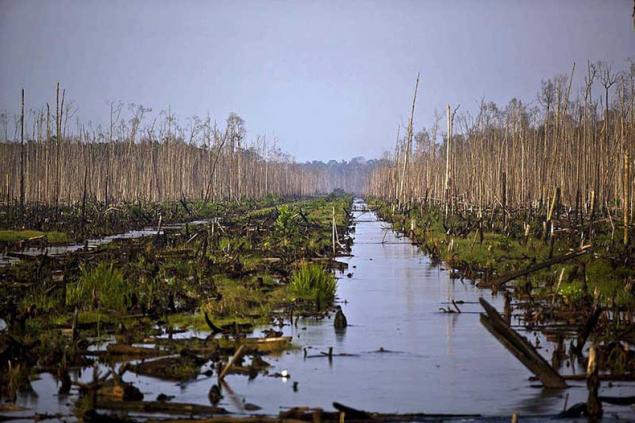



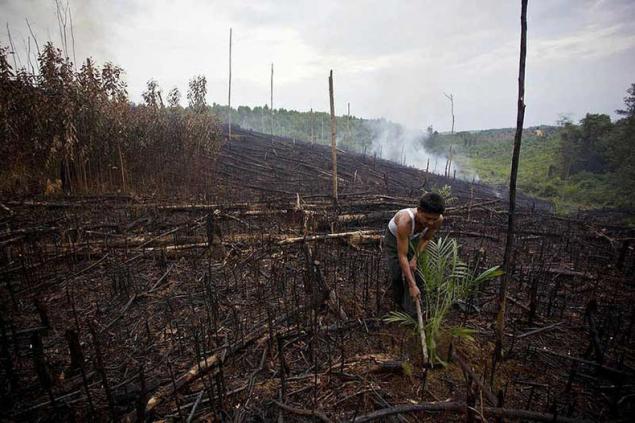
These facts are sufficient to make a conclusion and try to avoid products that use palm oil. Unfortunately, many manufacturers in Russia on the packaging may not specify palm oil in their products, limiting "vegetable fats".
In the EU since December of last year, a law was passed, under which palm oil can no longer be specified in the product "hidden" — for example, under the General wording "vegetable oils". However, the introduction of such a law was difficult and took three years from design to entry into force.
In the United States on the packaging of the product containing palm oil must be somehow indicated. If we are talking about "a mixture of vegetable fats", that shared similar wording must follow the explanation about which fats are talking about.
What should I do?
To reduce and better excluded from the diet foods that are composed of vegetable oils of unknown origin. In addition, palm oil can be subjected to hydrogenation, as it is fraught with the formation of TRANS fats, the use of which can cause great harm.published
P. S. And remember, only by changing their consumption — together we change the world! ©
Join us in Facebook , Vkontakte, Odnoklassniki
Source: veganstvo.info/524-palmovoe-maslo-vred-zdorovyu-ekologii-prirode-i-zhivotnym-.html

Where does palm oil?
It is drained from the fruit of the oil palm, which grows in the distant Malaysia, Indonesia and Thailand. In its composition it is very close to cream.
The statistics of WWF (world wildlife Fund) States that 50% of all packaged products contain in their composition palm oil, while world production of palm oil has doubled over the last decade.
This product is made from the fruits of palm species Aviora or elais Elais guienensis. From the pulp of the fruit extract the oil called palm oil. But the kernel of the fruit also come into play. Of them produce oil, which is called agropalma. One plant produces at a time to four and a half liters of product. Due to the fact that the product itself crushed almost on the plantations of palm trees, its manufacture is quite simple and does not require special mechanisms.
At first glance, it may seem that if it is a product of plant origin, it is harmless. It turns out, not at all.
Palm oil is harmful to health
Palm oil contains a lot of saturated fat. If ordinary vegetable oil contains so-called unsaturated fatty acids (which are considered useful from the point of view of dietetics and nutrition), palm oil contains saturated fatty acids (they are considered to be more harmful and are present mainly in foods of animal origin). Now, palm oil is almost as much saturated fatty acids, like butter.
Such fats from plant sources are very resistant to environmental influences. Therefore, products in which they belong, stored for a long time, do not lose taste. In other words, it is a good preservative. Using it, improves marketable products, enhanced flavor characteristics, increased shelf life, reduced product cost. But if for manufacturers it is economically advantageous, for consumers is very harmful.
Nutritionists explain that saturated fats contained in palm oil is harmful to human health. The digestive system of humans is not adapted to such food. The consumption of saturated fats leads to abnormal lipid metabolism, increased cholesterol levels, resulting in affected vessels occur the atherosclerotic process. The body wears out faster and gets old.
The ability of fatty acids to increase the level of cholesterol in the blood and provoke the development of atherosclerosis, thrombosis, heart disease, obesity make palm oil an unacceptable product in human nutrition at any age.
Authorities in the field of healthy nutrition are constantly being told about the need to consume as little as possible saturated fats, which are the main components of palm and other tropical oils and, of course, are meat and dairy products.
"The national Institute for the study of heart, blood and lung", which is a division of "National Institute of Health" in 1997 warned his statements: "Saturated fats raise cholesterol in the blood as no other. This excess cholesterol can clog arteries. Consequently, increases the risk of heart disease".
In 2015, imports of palm oil to Russia increased by one third
The volume of supply of palm oil to Russia is growing at a frightening pace. After joining the WTO, the duties fell on him at times — and imports went up. Major suppliers of palm oil to Russia are Indonesia (61%), Malaysia (14%), Netherlands (10%) and Ukraine (9%).
While strict regulations of the use of palm oil in Russia. This allows many dealers to buy its technical options at bargain prices in third world countries. According to experts, most often for these purposes the purchase of oil intended for the production of cosmetics, pharmaceutical products, toilet preparations, Soaps, detergents and Lakokraska. Another problem: we have rules on the transport of palm oil, allowing you to carry it in tanks under bitumen and tar.
Last year the state Duma has already tried to declare war on tropical oils. It was stated that we in the food industry most often used low-quality oil intended for technical applications. The application of those proposed to ban. But the specific taboos, the situation never reached.
Another problem is oxidation of the oil. "Against the use of high-quality palm oil in food products (and this is pressed from the fruit collected for 24 hours and cleaned) almost no one objected. However, the thus obtained oil is very important to pack in air tight containers for delivery to the place of consumption. Otherwise any vegetable oil is oxidized, and the food you eat it you should not. The products of oxidation are toxic for our organism, have a carcinogenic effect. Unfortunately, despite existing in the food industry regulation on the use in the production of palm oil of the highest quality, often are brought into our country oxidised palm oil, which, in fact, causes great harm to our health", specialists say.
Nature, ecology and animals
According to statistics, annually produces approximately 35 million tonnes of palm oil. The largest producers are Malaysia, Indonesia.
To create new plantations in South-East Asia, tropical forests are being destroyed at a speed equivalent to the destruction of 300 football fields per hour.
Deforestation exacerbates the climate change on a planetary scale. Forests are the lungs of our planet producing a huge amount of oxygen and helps break down carbon dioxide. From tropical deforestation depends on the climatic situation in the world, is heating the planet, leading to global warming.
Millions of species of animals, insects and plants are under threat of extinction. Deforestation has caused the threat of extinction, at least 236 plant species and 51 animal species only in Kalimantan (region, Indonesia).
Particularly affected are orangutans and pygmy elephants. Both animals are currently at the stage of extinction. Over the past 10 years the number of orangutans has decreased by 50 % as a result of habitat loss from deforestation for palm oil production.
On the island of Sumatra – the largest island of Indonesia just over 6 thousand orangutans. It is believed that more than 1,000 orangutans are killed annually due to human fault.







These facts are sufficient to make a conclusion and try to avoid products that use palm oil. Unfortunately, many manufacturers in Russia on the packaging may not specify palm oil in their products, limiting "vegetable fats".
In the EU since December of last year, a law was passed, under which palm oil can no longer be specified in the product "hidden" — for example, under the General wording "vegetable oils". However, the introduction of such a law was difficult and took three years from design to entry into force.
In the United States on the packaging of the product containing palm oil must be somehow indicated. If we are talking about "a mixture of vegetable fats", that shared similar wording must follow the explanation about which fats are talking about.
What should I do?
To reduce and better excluded from the diet foods that are composed of vegetable oils of unknown origin. In addition, palm oil can be subjected to hydrogenation, as it is fraught with the formation of TRANS fats, the use of which can cause great harm.published
P. S. And remember, only by changing their consumption — together we change the world! ©
Join us in Facebook , Vkontakte, Odnoklassniki
Source: veganstvo.info/524-palmovoe-maslo-vred-zdorovyu-ekologii-prirode-i-zhivotnym-.html
To accept with gratitude the fact that there are 16 secrets of a happy tomorrow!
Fasting is like on an archaeological dig




